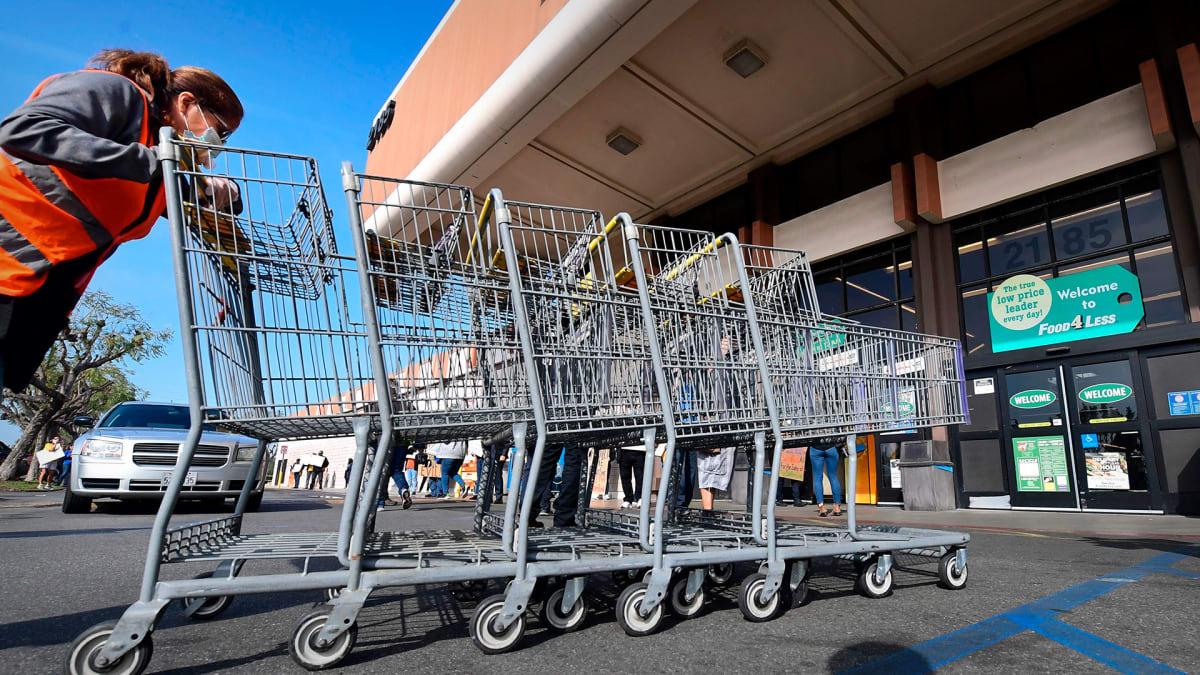
Monopolies can control prices. Since they don't have any competition, they theoretically have no incentive to treat customers well or fairly.
We saw this in the 1980s and 1990s when cable companies had contractual monopolies with towns and cities: In exchange for installing the infrastructure, they got to be the sole providers. Those attitudes have lingered in some of those companies to this day, even as they have competition in most markets.
DON'T MISS: Walmart Takes a Big Step Toward Fixing a Huge Customer Pain Point
The federal government has a responsibility to protect Americans from monopolies. That's why the Federal Trade Commission scrutinized T-Mobile's effort to buy Sprint in 2020. The agency was concerned that the mobile-phone industry would go from four major players to three.
In reality, AT&T and Verizon were a clear step ahead of T-Mobile and even farther ahead of Sprint. Their larger customer bases enabled them to invest in their networks more heavily, and that gave them a sort of perpetual advantage.
T-Mobile buying Sprint erased that advantage and turned a big two into a big three, which actually gave customers more viable choices. That's what will happen if Kroger (KR) is allowed to combine with Albertson's (ACI) to create a chain with nearly 5,000 locations and more than $200 billion in sales.
That merger wouldn't limit consumer choice, it will create another player on the scale of industry leaders Walmart (WMT) and Target (TGT). It will also give consumers another player with at least some of the buying power to rival low-price leader Costco (COST).

Image source: Jeremy Hogan/SOPA Images/LightRocket via Getty Images
Kroger Needs More Scale
Walmart, Target, and Costco, not to mention Amazon (AMZN), have changed the grocery game. Regional chains -- which are what most grocery stores/supermarkets are part of -- don't have the volume needed to compete on price.
There are other niches, of course. Publix has built a densely packed store base in Florida that puts it close to its customers while making its supply chain efficient.
But the reality is that regional chains won't have the ability to be low-price leaders, and a larger Kroger won't be competing with them, it will become another national option taking on Walmart, Target, Costco, and Amazon.
"Grocery is a low-margin business. The only viable way to deliver consistently low prices is through scale. Whether people like it or not, that’s an economic fact," wrote Global Data Managing Director Neil Saunders on RetailWire.
Saunders also pushed back on not just the FTC fighting the merger but also the idea that Kroger and Albertson's would sell stores to please the federal agency.
"The idea that the two chains would merge only to close masses of stores is absurd. Of course, there might be some job losses as duplicate functions and roles are consolidated, but most of these will not be on the front line...My concerns for the merger are more around whether the synergistic savings will be delivered as companies tend to over-promise on this front," he added.
Kroger and Albertson's CEOs Make Promises
Kroger CEO Rodney McMullen and Albertson's CEO Vivek Sankaran wrote a joint opinion piece in the Cincinnati Enquirer that attempted to assuage people's fears about the merger.
In the essay, they made a number of promises. This includes pushing back on the idea that stores will be closed because of the merger.
"We understand the idea of a trusted neighborhood store closing is worrisome. That’s why Kroger committed to zero store closures as a result of the merger, and the company will invest in stores post-merger," they wrote.
The two companies also promised that any stores they are forced to sell would be sold to "reliable operators."
In addition, the two CEOs tried to address fears about union jobs being lost.
"No frontline workers will be laid off as a result of the merger. The combined company will have one of the largest unionized workforces in the country. We are committed to protecting and expanding opportunities for union jobs," they added.
FInally, the two CEOs shared their pricing philosophy.
"As a combined company, Kroger and Albertsons will be even more customer focused. We will offer lower prices and more choices on products customers want, need and love" they wrote.
And, while premerger promises aren't binding, what the two CEOs are writing makes sense. They need to compete with giants who offer low prices and that requires being a giant that can do the same.
Receive full access to real-time market analysis along with stock, commodities, and options trading recommendations. Sign up for Real Money Pro now.







